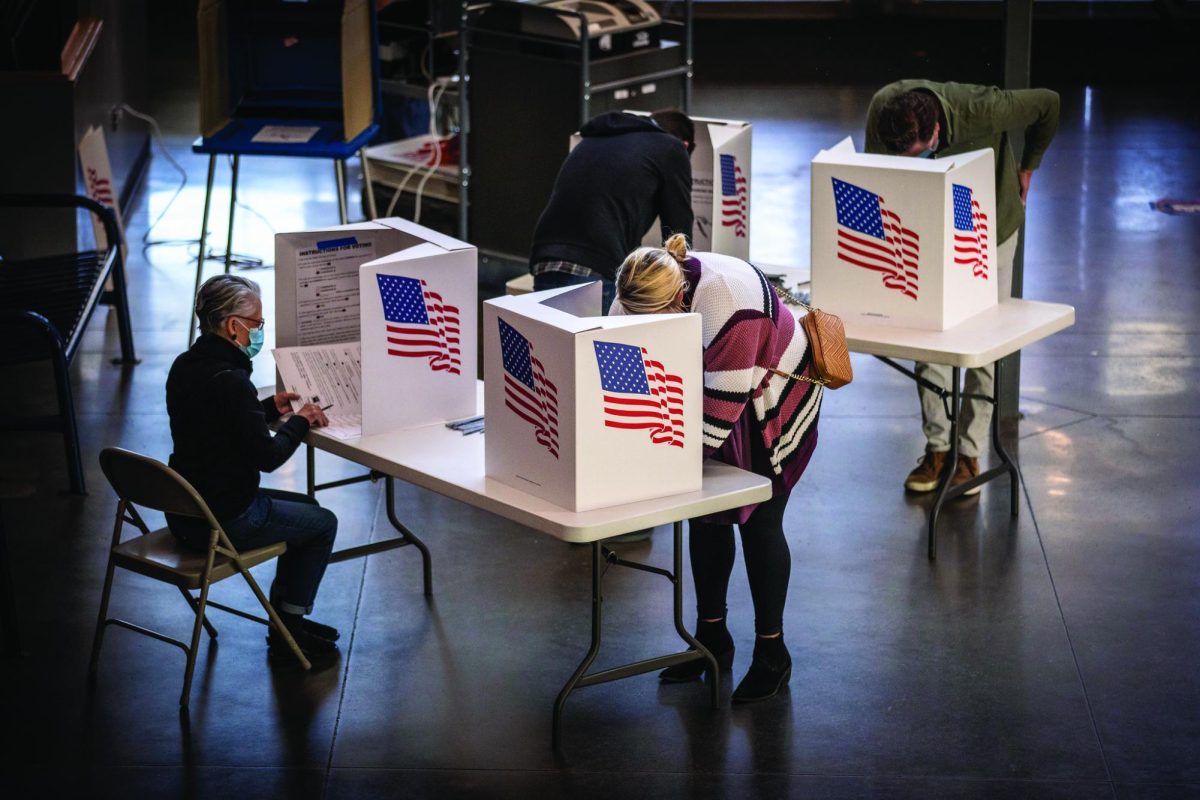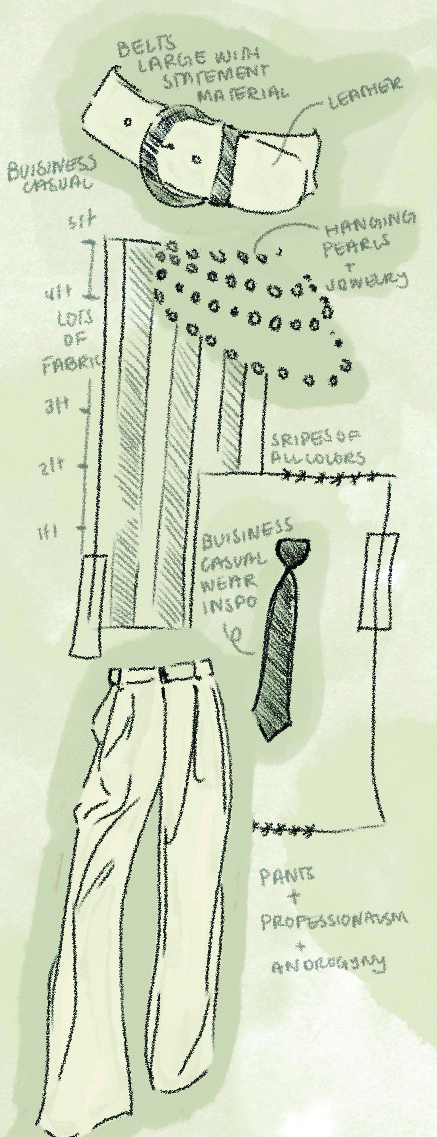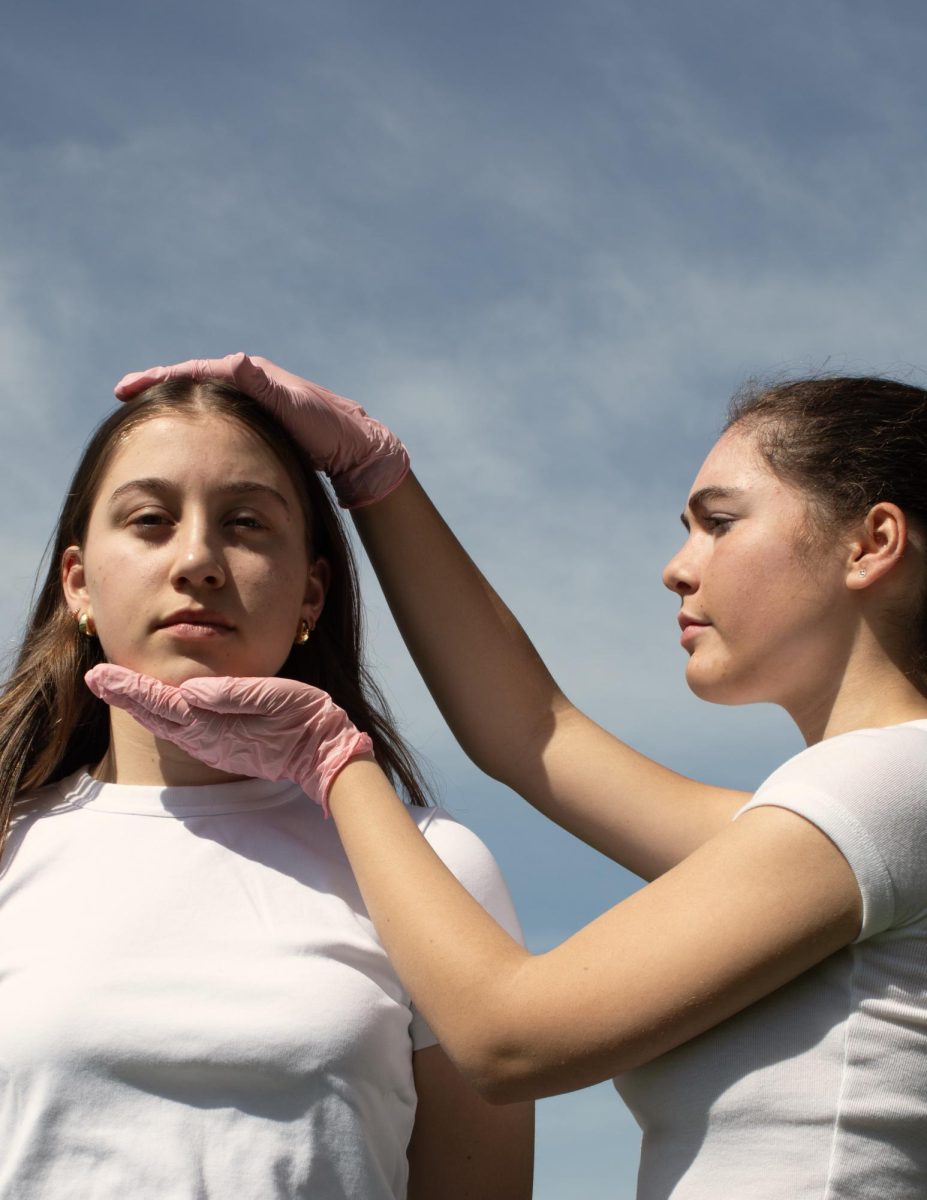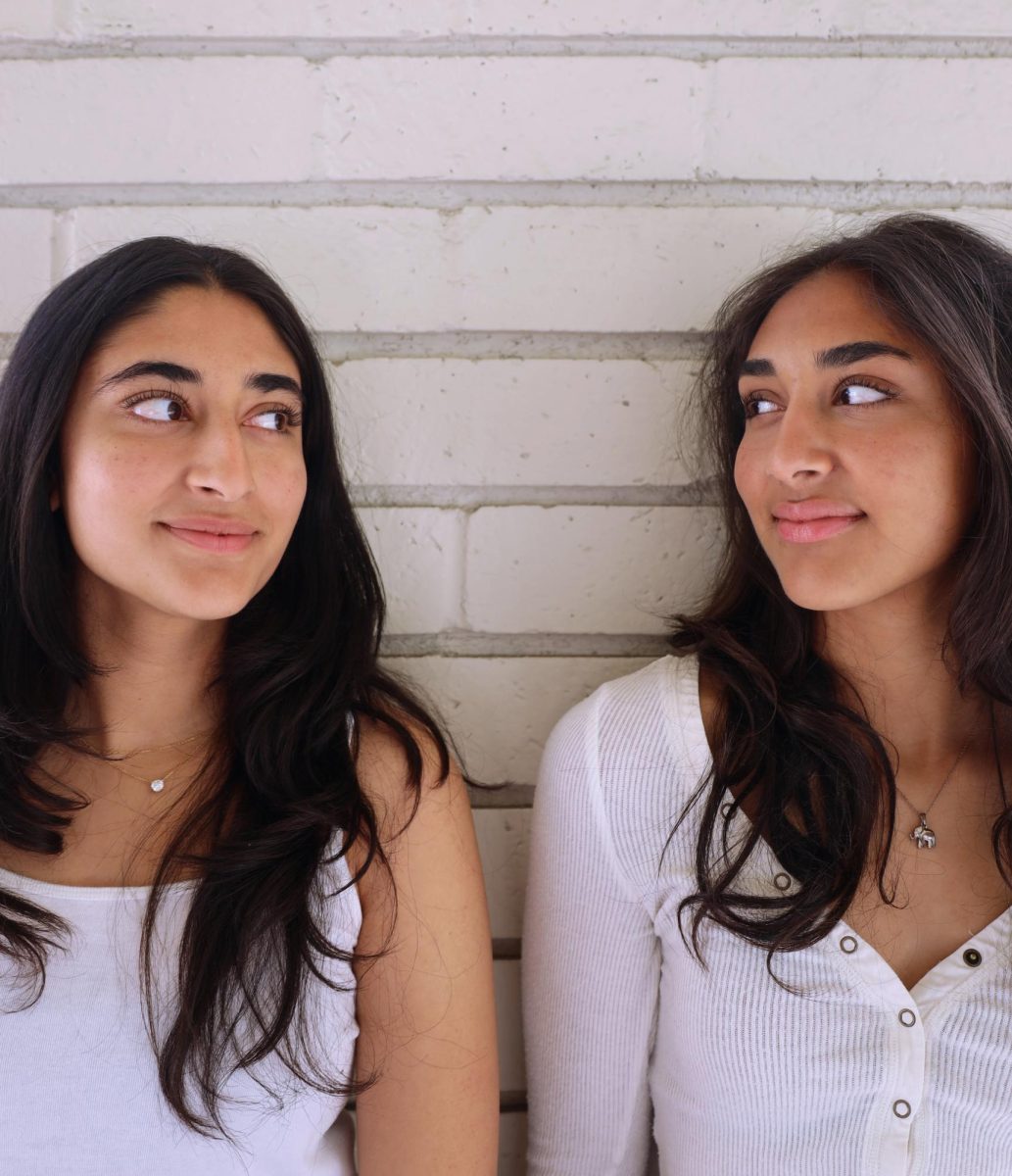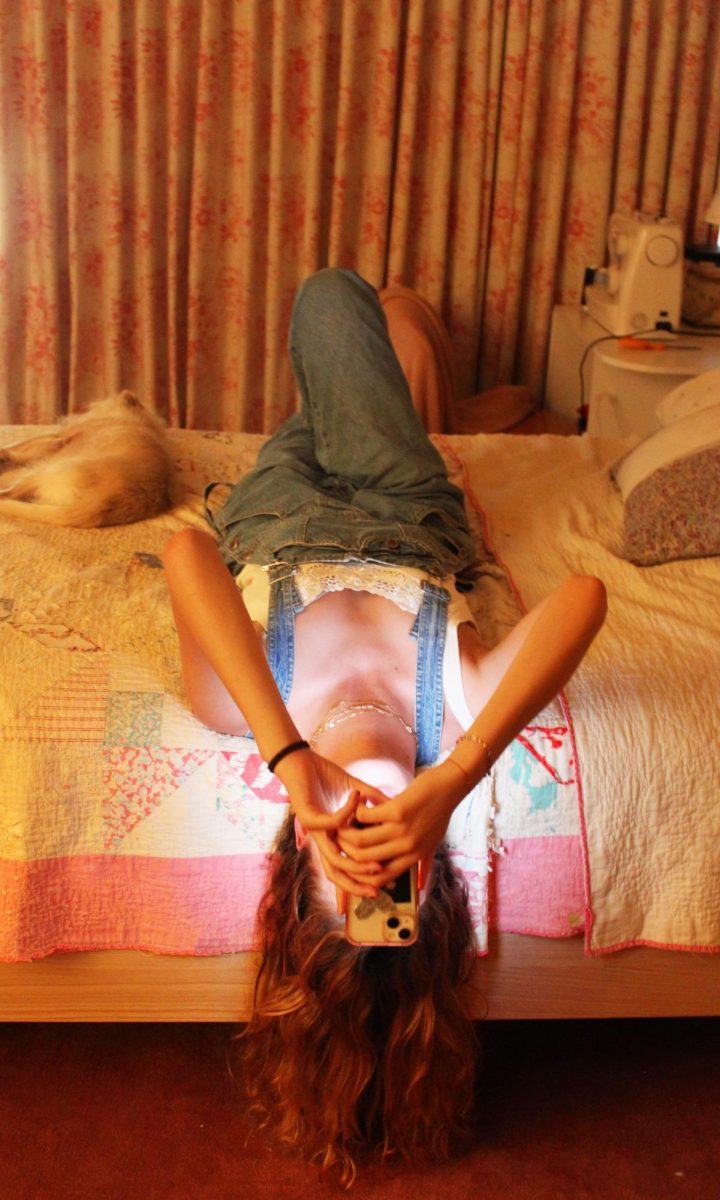By: Remy ’14 and Claudia ’15

Several years ago, Jen* and Candice were dating. They engaged in repeated public displays of affection (PDA) on campus during School hours, holding hands, hugging, sneaking off to be alone and occasionally kissing in the halls, despite a few warnings from administrators to tone it down.
One day, the girls were called into a faculty member’s office, where they were told that because several of their peers, their peers’ parents and their teachers had complained that their public affection made girls uncomfortable and disrupted life at School, administrators would have to call the girls’ parents.
Jen panicked. Just please don’t call my father, she said. The faculty member took this to mean that Jen’s mother had already been told by her daughter that she was not heterosexual.
Because this point was not explicitly clarified, likely because both the girls and the faculty member felt uncomfortable having this conversation, the faculty member, ended up outing Jen to her mother. Perhaps even more surprising, is that no School administrators were aware that this is what had transpired until The UltraViolet investigated the incident.
Did the School proceed incorrectly, and, if so, how can those errors be rectified? The School knows that a certain percent of students are not heterosexual and thus may have relationships with one another, yet we have no guidelines on how to deal with PDA and relationships on campus; as Jen’s story stresses, a lack of protocol can have unfortunate consequences, especially since students are more likely to be accepting of the LGBTQ (Lesbian, Gay, Bisexual, Transgender, Queer) community than their parents.
What caused students to gossip and complain about these two girls—were they uncomfortable with their PDA, or with their homosexual relationship? Is it appropriate for girls to report other girls engaging in PDA simply on the basis that it makes them uncomfortable, or is this giving them undue power over peers who aren’t heterosexual?
Of course, sex and dating are a focal point of high school intrigue, whether at a single-sex or co-ed school. But does the speed and intensity with which rumors about same-sex relationships are created and spread throughout School represent malicious intent or an underlying homophobia among the student body? Is our supposedly accepting and progressive community truly doing its best to normalize same-sex relationships?
HOW TOLERANT ARE WE?
Many students and employees wear rainbow on National Coming Out Day and are very tolerant and open-minded. But some LGBTQ students in the community said they sense an undercurrent of homophobia from certain corners towards girls who are not heterosexual.
Perhaps because the acceptance of LGBTQ communities has only recently, in the past decade or two, become so mainstream, Marlborough’s administration seems to be relatively unsure of how students feel about same-sex relationships at School.
“I don’t know the level of comfort that students have in regards to potential relationships that girls may have with girls,” Assistant Head of School and Director of Upper School Laura Hotchkiss said. Many faculty have said that, to the best of their knowledge, the student body has a positive response to these relationships and is far more accepting than their peers at other institutions. According to School Counselor Emily Vaughn, there’s been a decided increase in tolerance for diverse sexual orientations over her 13 years here.
And many students agreed that the School provides an accepting and respectful community.
“There’s no negative reaction or bullying [against same-sex relationships],” Selena ’15 said. However, some members of the LGBTQ community are not convinced that discrimination is entirely absent from campus.
“People are usually accepting, [but] there are occasionally some people who do have a problem and have even stated that they have a problem,” said Jordan ’14, who identifies as pansexual. Jordan went on to explain that students who do consider same-sex couples unacceptable tend to cite religious beliefs as a cause, or say that they think homosexuality is wrong but “won’t pass judgement on the matter.”
Co-President of Gay-Straight Alliance Rita Akincilar ’13 said that subtle discrimination can emerge unexpectedly, even among friends.
“My friends aren’t completely non-judgemental,” Akincilar said. “It’s tough getting the point across that [their behavior can be] hurtful.”
Many Marlborough students who are not heterosexual also cited carelessness as a cause of offense when sexuality comes up in conversation.
“I think that [certain people] are super judgmental [and]… are not as conscious and aware of the feelings of others,” Akincilar said.
Although they were offered anonymity, no students agreed to speak on the record about their objections to or feelings of discomfort with homosexuality. Considering the response from the LGBTQ community, however, it’s clear that these prejudices persist at School, albeit in private conversations.
KISS KISS BAN BAN
Many students say PDA between girls at School makes them uncomfortable. But is this uneasiness a natural adolescent reaction to seeing two teens kissing, or is it homophobic?
“I don’t want to see two girls making out in the hallway because it would be inappropriate at School,” Selena said.
But numerous girls raised the point that many friends around campus are prone to hugging, holding hands or snuggling on a couch.
“I’ll hold hands with anyone, really, regardless of if they’re my girlfriend or not,” said Delilah ’14, who identifies as bisexual. She went on to say that her peers do double-takes when they see her holding hands with another girl, presuming that there’s something more to their friendship.
The Marlborough Handbook does not contain any set guidelines for what PDA is allowed or how students are to be punished.
“I think that our philosophy has always been, whether the School is co-ed or not, that physical intimacy on campus is really not in keeping with the School setting, where learning should be coming first,” Hotchkiss said
According to English instructor and Alliance faculty advisor Deborah Banner, in most disciplinary cases the School has made an effort to be extremely sensitive about recognizing that not every girl is out to her parents. However, in some cases, as with Jen, the School fails to tread carefully and becomes the catalyst for uncomfortable situations in students’ home lives. Though Jen’s mother ended up being accepting of her daughter not being heterosexual, the matter caused Jen unnecessary emotional turmoil.
Some students question whether the lack of policy is not in itself biased against same-sex relationships, arguing that it implies the School assumes the issue will never arise. Others are less emphatic, merely stating that it wouldn’t hurt anyone to set some ground rules. For the most part, the LGBTQ community has a negative response to the prospect of creating official PDA guidelines.
“I don’t want them to say, ‘We’re ok with girls holding hands’… this relationship is not under the jurisdiction of Marlborough,” Akincilar said.
However, other students believe that these policies may be unavoidable. Delilah said she would consider such rules to be restricting girls’ rights but feels that they “might be necessary for that minority of people who are homophobic and need that kind of thing to keep them happy.” Delilah also said that she feels that even co-ed schools shouldn’t regulate dating.
At co-ed schools such as Mira Costa High School that do have strict policies in place about PDA, however, students often disobey the rules but are rarely punished.
Furthermore, if students see others violating these policies, they are rarely, if ever, inclined to report it to the faculty.
However, Hotchkiss said that she doesn’t believe that this is an inappropriate difference between institutions. “I don’t think [a PDA policy is] necessary,” she said, explaining that the The Understanding should cover PDA-related offenses. “A rule… maybe doesn’t fit every situation.”
RUMORS WITH A VIEW
In such a small community, girls who are not heterosexual are often scrutinized by their classmates, becoming a popular topic of conversation. Every girl interviewed for this article brought up the issue of gossip, usually saying that, if she were to cite a problem with the School’s attitude toward intra-school relationships, it would be the rumors that run rampant about LGBTQ students.
“I’ve had people who, just because I’m kind of queer, will make up rumors about what me and my friends are doing, or what our relationships are,” Jordan said. “I’ve heard so many rumors about me dating, like, half of my friends.”
She went on to note that these rumors were not only hurtful but ridiculous and massive in scope. Some interviewees even went so far as to name rumors they have heard over the years. Some employees also said they know that there is much gossip centralized around students who are not heterosexual.
“I’ve… heard rumors that are meant to be hurtful to kids, in which girls start whispering about, ‘Oh, I think so-and-so is a lesbian,’” Banner said. “First of all, that shouldn’t be a negative fact. And second, what if a student is a lesbian, but she’s not out to her friends and family? Or what if she isn’t gay, and now her classmates are spreading false statements about her? Or what if it’s someone who’s questioning her sexuality and trying to make her own decisions without being judged? Whatever the situation, those rumors can be really damaging.”
Indeed, a number of girls said they were victims of having their sexual orientation discussed long before they came out. Jordan said that most of her peers made assumptions about her sexuality based on irrelevant factors such as appearance and general demeanor, even when she was unsure about her own sexual identity.
Raquel Santizo ’15 said she thinks the disproportionate amount of gossip about students who are not heterosexual reflects something darker about the student body than most are willing to admit.
“I would say there is something homophobic about [the gossip],” she said. “We say [being gay] is a positive thing, and we have [National] Coming Out Day, but there seems to be a negative connotation.”
Some students, however, believe that these hurtful rumors may be generated more by girls’ need to gossip with one another rather than by a malicious intent to harm others.
“If someone even mentions [a same-sex relationship], the entire conversation gets turned to that point. I don’t think that it’s ever bad intentions,” Akincilar said. “I think that it’s just exciting for them.”
*Names have been changed for all sources without last names.




